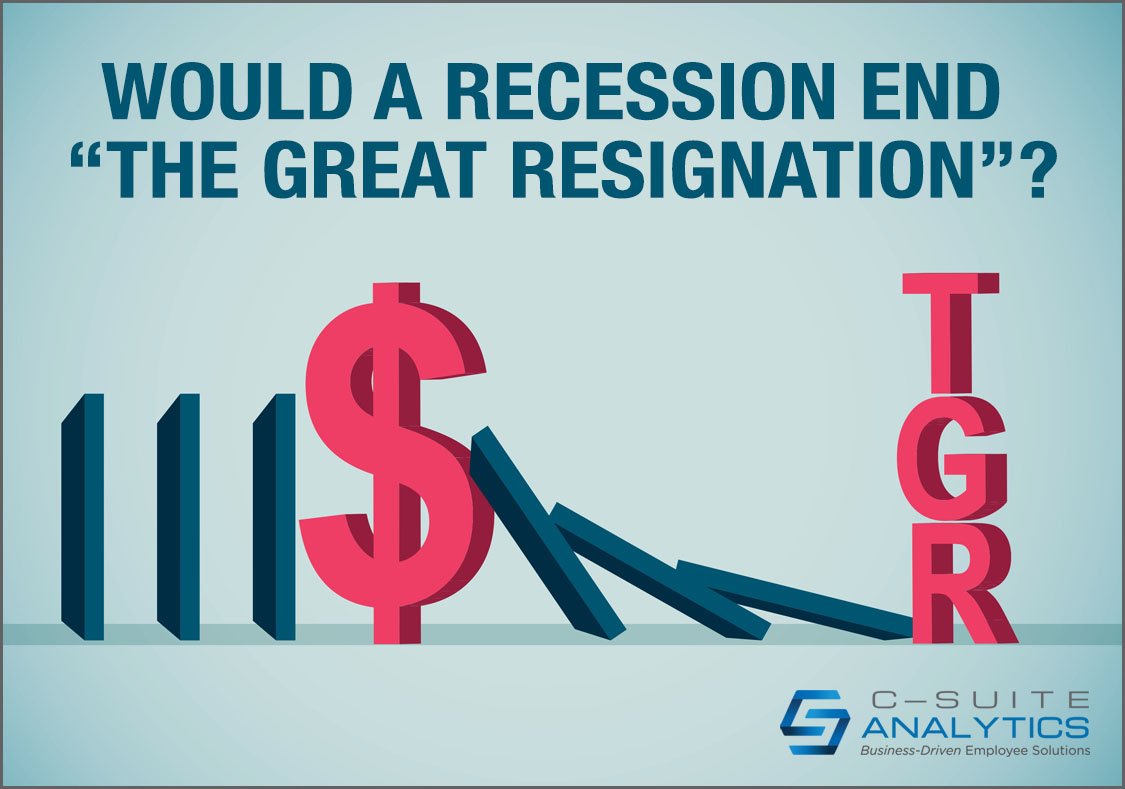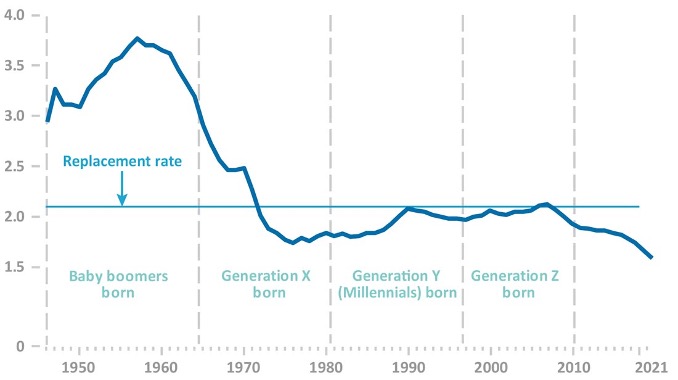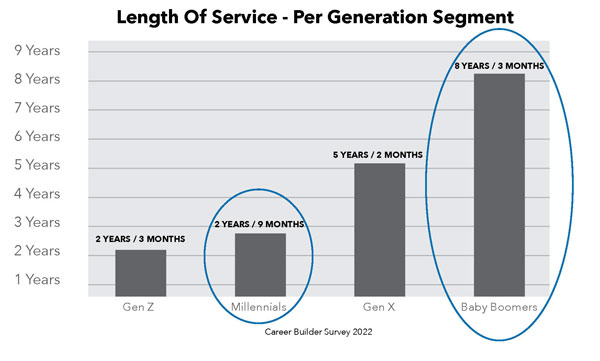Most hiring tools answer whether candidates can and will do the job, but not if they’ll stay. Learn how realistic job previews and motivational-fit interviews can improve retention from day one.
Would a Recession End “The Great Resignation?”

This real-life customer service story typifies the low levels of service we now receive during these times of worker shortages:
- Our county failed to pick up our trash last week.
- Because we live in heavy black bear country, our county imposes strict laws on us regarding when and how to put our trash on the street.
- So that evening we along with our neighbors decided to pull our trash back toward our homes and then put it out again the next day before 8 AM.
- By noon that following day our trash was still on the street, sending that sweet garbage aroma to nearby bears.
- My wife called the county and got a temp who said the two county employees who managed trash issues had quit, and therefore we were on our own to contact WastePro to complain about still having our trash.
- I then called Waste Management by mistake instead of WastePro, and 17 minutes later their system dropped my call.
- Later that day I called WastePro who guaranteed me our trash would be picked up in 24 hours, apologizing for their screw-up but taking no responsibility for the trash the bears would likely strew across our street.
- That response being unacceptable, I asked to speak to a supervisor and was told one would call me within two hours.
- I’m still waiting for that call.
- And WastePro failed to pick up our trash the next day as promised.
This story is loaded with quits and incompetence representing third-world customer service, reinforced by our county’s website statement that the county and its trash-haulers “are experiencing trained staffing shortages”.
Predicting Recession and “The Great Resignation”
Stories just like this are happening at a time when economists are predicting a recession. In fact my friend Bill Conerly just predicted in Forbes a recession would hit in late 2023 or early 2024.
You can read Bill’s reasoning here: https://www.linkedin.com/feed/update/urn:li:activity:6993230240009375744/
Like most economists, Bill says to take his prediction with “a grain of salt”, reminding us of Harry Truman’s memorable economists’ quote. Truman reflected on how often economists used the term “On one hand…” referring to alternate possibilities. Truman famously said “What I need is a one-armed economist”.
“The Great Resignation” and Workforce Data Significance
For those of us who study workforce data, along with those of you who live with the resulting drama of daily workforce shortages, the question becomes would a recession bring with it a silver lining by realigning our number of workers with our number of open jobs. Let’s begin by asking which of these current key metrics will significantly change?
- Unemployment is 3.5% resulting in most economists saying everyone who wants a job already has one; that our employee supply has bottomed out.
- There are 10 million open jobs, about 50% more than the 6.7 million open jobs at the end of 2019 which is considered the last “normal” year.
- Those 10 million open jobs have come down from a previous high of 11.5 million earlier this year, indicating some have been filled but it is likely others have been pulled back by employers who anticipate a recession…yet a full 10 million open jobs remain.
- Employees continue to quit in record numbers, projecting to nearly 35% of them voluntarily leaving their jobs this year.
“The Great Resignation” and Missing Workforce Data
The missing data few understand is the high number of workers who have turned their backs on traditional employment as a result of the pandemic. Examples include…
- 2 million-plus retired in 2020 who had no previous plans to do so, motivated by being “furloughed” during the pandemic or mandated to work in unsafe environments.
- An additional 2 million-plus quit to stay home with their kids because schools and daycares were closed, and for many reasons most of those workers have continued to stay home.
- Millions become impromptu entrepreneurs during the pandemic, either by necessity or by choice; restaurant workers were forced to different jobs driving for Uber or whatever and then refused to return to weekend and midnight work, while the Wall Street Journal profiled a professional healthcare worker who decided his highest value was taking his daughters to soccer practice, and hence he became a self-employed consultant.
- And then of course 1 million people died of COVID, many of whom left both their families and their jobs behind.
Two Key Data Points that Drive “The Great Resignation”
But there are two additional data chunks that probably drive “The Great Resignation” more than the rest. These were with us before the pandemic but their impact is greater now.
The U. S. birthrate has fallen steadily since 1955…yes, that long…while we dipped below the replacement rate of 2.2 babies for each 2 adults 50 years ago in 1972 and have been below that rate nearly every year since. Just one factor separates us from Japan where the falling birthrate corresponds with their falling economy…and that factor is immigration. Our media has associated immigration with Mexican border issues while our economy would falter greatly if people from all around the world didn’t want to move here.

And let us not forget these startling figures regarding length of service with each employer by generation:

Would a Recession End “The Great Resignation”?
Five years ago, we might have said these young people will wise up, will settle down. But they are now victorious as millennials and gen Z comprise a full 51% of our current workforce. And Time Magazine published a study that said young workers will thrive in these times of many open jobs and their historic disloyalty.
So our question is would a future recession end “The Great Resignation”? My prediction is it might end that name but it won’t end our workforce shortage. There just aren’t enough bodies to go around.



